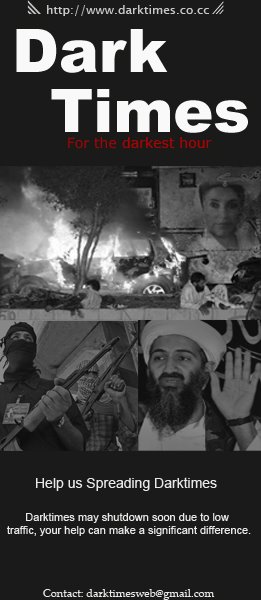Saturday, December 29, 2007

ISLAMABAD (AFP) — Pakistan indicated Saturday it would delay January elections because of turmoil caused by the death of Benazir Bhutto, as a bitter dispute erupted over how the opposition leader was killed.
Violent protests and looting which have left at least 38 people dead and 53 injured have rocked the nation of 160 million Muslims since Bhutto was killed at a campaign rally in the northern city of Rawalpindi on Thursday.
The United States and Western powers have urged Pakistan to commit to the democratic process in the aftermath of her death, but leading opposition figure Nawaz Sharif has already said his party would boycott the polls.
Bhutto's Pakistan People's Party, which has accused the government of trying to cover up her death, has said it will take a decision on Sunday on whether to take part in the parliamentary elections scheduled for January 8.
Pakistan's interior ministry Saturday moved to quash the cover-up claims saying its account of how Bhutto died was 'nothing but facts' and offered to exhume her body for inquiry.
The crisis-hit country's election commission said it would hold an urgent meeting on Monday to decide the election's fate, but it indicated a delay could be on the cards.
"All activities pertaining to pre-poll arrangements, including printing of ballot papers and logistics as well as training of polling personnel, have been adversely affected," it said in a statement.
In some places, the commission said, the security situation was "not conducive" to holding the elections which Bhutto had come home from exile in October to contest.
It cited the death of an election candidate in a bomb blast and said election commission offices in nine districts had been set on fire and that voter lists had been "reduced to ashes".
The polls would lack credibility without the participation of Bhutto's PPP, which has been infuriated by the government's official account of their leader's death.
Bhutto died after a suicide attack targetted her vehicle at a campaign rally in the northern city of Rawalpindi. Early reports and witnesses said she had been shot before a bomb exploded nearby.
However the government said she had no gunshot or shrapnel wounds. It said the opposition leader died after smashing her head on her car's sunroof as she tried to duck.
The ministry also blamed Al-Qaeda, saying intelligence services had intercepted a call from Baitullah Mehsud, considered the extremist group's top leader for Pakistan.
Senior members of Bhutto's party dismissed the government's version of events as "lies".
"There was a bullet wound I saw that went in from the back of her head and came out the other side," Bhutto's spokeswoman Sherry Rehman, who was involved in washing her body for burial, told AFP.
"This is ridiculous, dangerous nonsense because it is a cover-up of what actually happened," said Rehman.
Bhutto was an outspoken critic of Al-Qaeda-linked militants blamed for scores of bombings in Pakistan and had received threats.
But she had also accused elements from the intelligence services of involvement in a suicide attack on a Bhutto rally in October that left 139 dead and which she only narrowly escaped.
Maulana Omar, a spokesman for alleged Al-Qaeda kingpin Mehsud, denied involvement in the attack and expressed grief over Bhutto's death.
"This is a conspiracy of the government, army and intelligence agencies," said the spokesman from Waziristan, a lawless tribal region where Al-Qaeda leaders, including possibly Osama bin Laden, are alleged to be hiding.
One day after Bhutto was laid to rest at her family's mausoleum in southern Sindh province, Pakistan was virtually paralysed with most people unable to buy food or petrol, with all shops, fuel stations, banks and offices closed down.
The streets of the country's main cities -- Karachi, Islamabad, Rawalpindi, Lahore and Peshawar -- were largely empty, and in many places there was evidence of violence and looting.
President Pervez Musharraf ordered security chiefs to take firm action against rioters, as the interior ministry estimated that damage ran into tens of millions of dollars.
"Elements who wish to exploit the situation by looting and plundering must be dealt with firmly," the Associated Press of Pakistan news agency quoted Musharraf as saying.
Analysts warned that Pakistan was facing its biggest crisis since Bangladesh split from the country more than 35 years ago.
"We are heading towards a very uncertain phase of politics which has the potential to plunge the country into a state of anarchy," Hasan Askari, former head of political science at Lahore's Punjab University, told AFP.
The assassination has also thrust security concerns and foreign policy back into the US political spotlight less than a week before Americans start voting to decide their Democratic and Republican presidential candidates.
Leading democratic candidate Hillary Clinton called for an independent, international probe into Bhutto's murder, saying Musharraf's government had no credibility.
But Pakistan's interior ministry rejected the need for external help, saying the international community "does not understand the environment" in Pakistan.
Bhutto was buried on Friday with hundreds of thousands of grief-stricken mourners following her coffin on the final journey to the family's mausoleum in the village of Ghari Khuda Bakhsh.
Educated at Harvard and Oxford, Bhutto first took the helm of Pakistan in 1988. She was ousted in 1990 amid corruption allegations but was premier again from 1993 to 1996.
She has been buried next to her father Zulfikar Ali Bhutto, a former premier who was hanged by the military government in 1979.
Labels: Pakistan News








0 comments:
Post a Comment